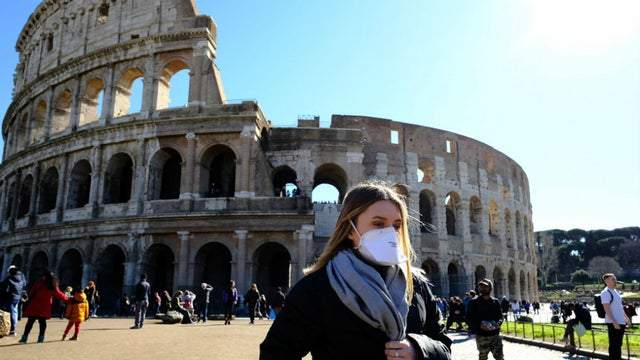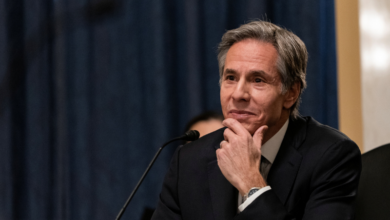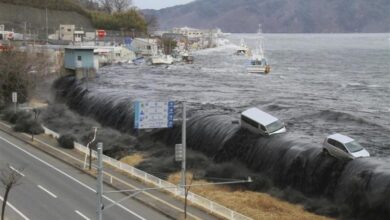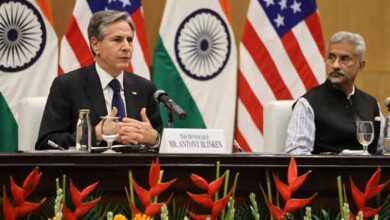Italy records lowest daily toll in over three weeks

Italy on Sunday reported its lowest coronavirus death toll in more than three weeks, confirming trends showing the Covid-19 outbreak in Europe’s worst-hit nation had peaked.
France also reported fewer deaths as compared to the previous day.
The 431 new deaths reported by Italy’s civil protection service were the lowest since March 19. The country’s death total now stands at 19,899, officially second behind the United States.
At least 109,300 people had died worldwide from the coronavirus in 193 countries and territories, according to a tally issued on Sunday.
With 75,011 deaths out of 909,700 diagnosed cases, Europe was the hardest-hit continent. Spain had 16,972 deaths and Britain 9,875. After falling for three straight days, Spain’s daily death toll rose to 619.
UK premier leaves hospital, says his fight with coronavirus ‘could have gone either way’
France reported a drop in Covid-19 deaths on the previous 24 hours, with the total toll from the epidemic in the country now 14,393, the health ministry said.
It said that there were 315 deaths in hospital over the last day, compared with 345 the day earlier. The total toll includes those who have died in nursing homes.
France had on April 6 recorded 605 deaths in hospitals, its highest daily number so far.
For the fourth consecutive day in a row, the number of patients in intensive care fell with 35 fewer patients, making a total of 6,845 people needing such treatment.
The health ministry reaffirmed that a “plateau” appeared to have been reached but warned the situation remained serious despite the slightly improving data.
“We must stay vigilant as the hospital and intensive care services are taking in very many patients,” it said.
France has been in lockdown since March 17 in a bid to slow the spread of the epidemic, with only essential trips allowed.
British Prime Minister Boris Johnson, meanwhile, said his personal battle with the coronavirus “could have gone either way” and added there was “no question” doctors saved his life, speaking in a candid video message after leaving hospital.
The UK leader checked into hospital a week ago and spent three days in intensive care after he was diagnosed with Covid-19 at the end of March, the most high-profile leader to come down with the virus.
Dressed in a suit and tie, Johnson thanked his doctors and vowed to help Britain defeat the virus as the country’s death toll topped 10,000 — a grim milestone only a handful of countries have passed.
“I hope they won’t mind if I mention in particular two nurses who stood by my bedside for 48 hours when things could have gone either way,” said Johnson, referring to the state-run National Health Service (NHS) staff who cared for him at London’s St Thomas’ Hospital.
He said he was discharged after “a week in which the NHS has saved my life, no question”, and officials said he would now convalesce at Chequers, the country estate of British prime ministers, on the advice of his medical team.
“The reason in the end my body did start to get enough oxygen was because for every second of the night they were watching and they were thinking and they were caring and making the interventions I needed,” he said of the medical staff.
Curfew extended
Saudi Arabia indefinitely extended a curfew on Sunday amid a surge of new infections, and the United Arab Emirates warned of possible action against countries refusing to allow migrant workers to be repatriated.
Since placing the capital Riyadh and other big cities under 24-hour curfew on Monday, Saudi Arabia has reported more than 300 new cases per day. The nationwide curfew, initially set for three weeks, runs from 3pm to 6am everywhere else. For both this and the 24-hour curfew, residents may go out only for essential needs.
The Saudi interior ministry announced new permits for vital personnel to move around. Violators face fines and jail time.
Saudi Arabia has recorded 4,462 infections with 59 deaths, the highest among the six-nation Gulf Cooperation Council, where the total neared 14,100 with 96 deaths.
Other Gulf Arab states have taken similar precautions and have seen the virus spread among low-wage foreign workers, many living in overcrowded accommodation. Millions of migrant labourers, mainly from Nepal, Pakistan, India and the Philippines, are among the region’s large expatriate population.
Bahrain said 45 of 47 new cases reported on Sunday were foreign workers.
The United Arab Emirates, the region’s tourism and business hub, has the second highest regional load at 3,736 cases and 20 deaths.
The UAE warned it would review labour ties with countries refusing to take back citizens, including those who lost their jobs or were put on leave, and said it was considering strict quotas for work visas issued to nationals of those states.
“Several countries have not been responsive about allowing back their citizens who have applied to return home under the current circumstances,” the Human Resources and Emiratisation Ministry said, without specifying which countries.







